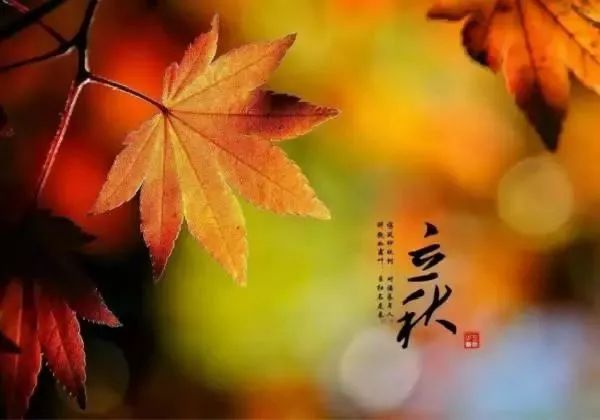Liqiu is the thirteenth solar term among the twenty-four solar terms, marking the beginning of autumn. Therefore, Liqiu is also known as“交秋”.
The ancients regarded the beginning of autumn as an important moment at the turn of summer and autumn, and attached great importance to this solar term. As a result, many customs and customs about the beginning of autumn have emerged.
In the past, cool autumn arrived and the weather was still hot after the beginning of autumn, but the overall trend was that the weather gradually became cooler. At this time, various crops are growing vigorously, which is a good time to fertilize crops. Liqiu is a transitional season from hot to cool, characterized by a gradual decline in yang energy and an increase in yin energy. Therefore, we should exercise appropriately, maintain a calm mood, and pay attention to lung and respiratory diseases.

According to records, as early as the Zhou Dynasty, on the day of the beginning of autumn, the emperor personally led the three dukes and nine nobles to the western suburbs to welcome autumn and hold sacrificial ceremonies. Later, it gradually evolved into the establishment of the Autumn Emperor, who personally led civil and military officials to set up altars in the suburbs to welcome autumn.
In the Eastern Han Dynasty, the ceremony of welcoming autumn by officials was even more grand. First, they had to wear black collar underwear and white outer clothing to go out of the city to welcome autumn. After the ceremony, they changed into red clothes, slaughtered livestock, and prepared offerings to recommend tombs and temples; The soldiers also started practicing and competing in autumn to prepare for the war.
宋代立秋这天,宫内要把栽在盆里的梧桐移入殿内,等到“立秋”时辰一到,太史官便高声奏道:“秋来了.”At the end of the play, wutong fell one or two leaves in response to the sound, to symbolize the meaning of autumn.
The custom of welcoming autumn expresses the ancient people’s reverence for nature.
After the beginning of the autumn season, both the court and the people will choose auspicious days to worship and thank the heavens and ancestors for their protection. They will also hold a tasting ceremony to celebrate the bountiful harvest of the five grains.
The ancients believed that only with the protection of the heavens could there be good weather; Spring plowing and autumn harvest, we cannot forget our ancestors. So every important festival, we should offer sacrifices and be grateful.
立秋这天,在我国一些地区流行“贴秋膘”习俗.说是伏天食欲不振,不少人会瘦一些,到立秋就要“贴秋膘”以补偿.
所以立秋这天,大家就要“以肉贴膘”,炖肉\肘子\白切肉\红焖肉等都比较常见.
“贴秋膘”时,鱼\肉切勿吃得太多,以免引发血脂升高,诱发冠心病等.
Because autumn is the harvest season, many taboos are related to it. It is said that Yunnan and other places avoid walking in the fields during autumn, as it is believed to be detrimental to the autumn harvest; In the areas of Henan, Jiangsu, and Hubei, thunderstorms, rain, and wind are avoided during the autumn season, as they are believed to affect the harvest after autumn. In some places, it is taboo to take a shower in autumn, as it is believed to cause diarrhea and other symptoms.
<p style="margin: 0px; padding: 0px; clear: both; max-width: 100%; min-height: 1em; color: rgb(51, 51, 51); font-size: 17px; text-align: justify; font-family: -apple-system-font, BlinkMacSystemFont, "Helvetica Neue", "PingFang SC", "Hiragino Sans GB", "Microsoft YaHei UI", "Microsoft YaHei", Arial, sans-serif; letter-spacing: 0.544px; overflow-wrap: b
Leave a Reply